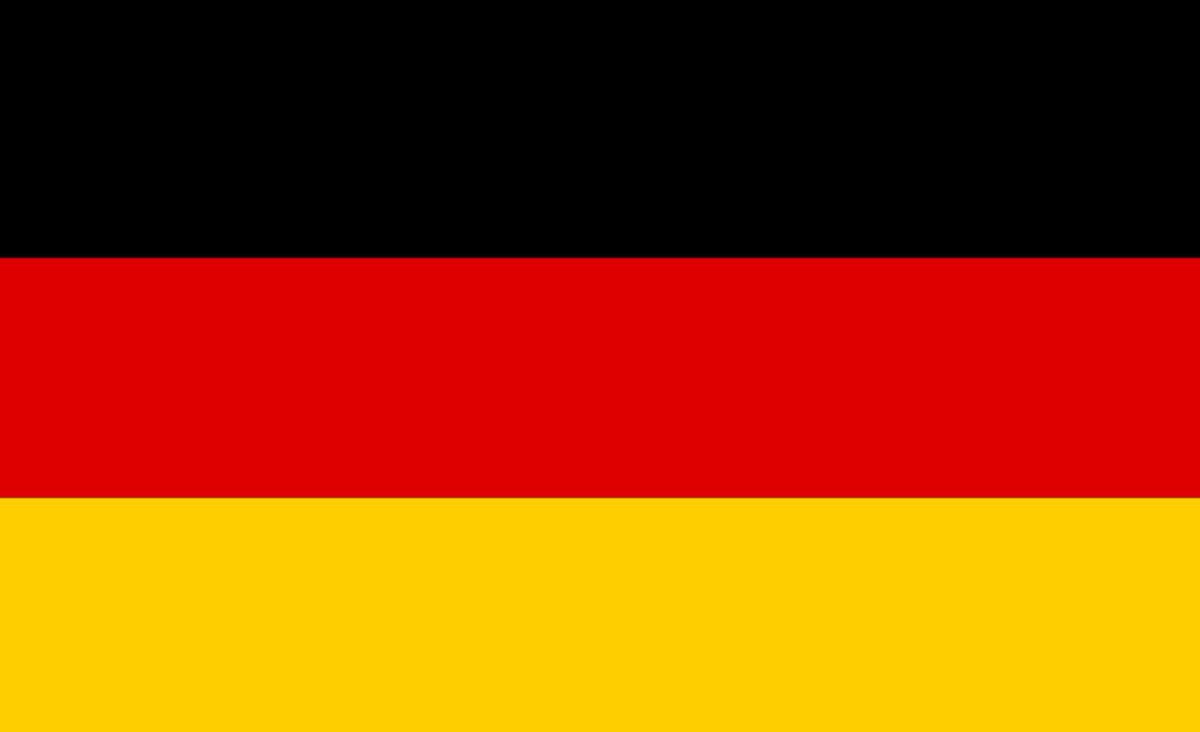@HumansNoContext Mercedes-Benz. Thanks to Gottlieb Daimler & Karl Benz.
@HumansNoContext The MP3 audio compression format. The Fraunhofer Society, a German research institution, played a significant role in developing this technology, which revolutionized the way digital music is stored and transmitted.
@HumansNoContext The X-ray machine, which was discovered by Wilhelm Conrad Roentgen in 1895.
Here is few: * Printing Press by Johannes Gutenberg * Automobile by Karl Benz, Gottlieb Daimler * Aspirin by Felix Hoffmann * X-ray by Wilhelm Conrad Roentgen * Theory of Relativity by Albert Einstein * Diesel Engine by Rudolf Diesel * Contact Lenses by Adolf Eugen Fick * MP3 Format by Karlheinz Brandenburg
@HumansNoContext The electron microscope, which was developed by Ernst Ruska and Max Knoll in the 1930s. This invention greatly advanced our ability to observe objects at the atomic and molecular levels.
I give you only 50 🤣: 1. Automobile (Karl Benz) 2. Aspirin (Felix Hoffmann) 3. X-rays (Wilhelm Conrad Roentgen) 4. Printing Press (Johannes Gutenberg) 5. Jet Engine (Hans von Ohain) 6. Electron Microscope (Ernst Ruska and Max Knoll) 7. MP3 Format (Karlheinz Brandenburg) 8. Gummy Bears (Hans Riegel) 9. Theory of Relativity (Albert Einstein) 10. Television (Manfred von Ardenne) 11. Diesel Engine (Rudolf Diesel) 12. Airship (Count Ferdinand von Zeppelin) 13. Contact Lenses (Adolf Eugen Fick) 14. Helicopter (Henrich Focke) 15. Airbag (Mercedes-Benz and Walter Linderer) 16. Quark (German cheese) 17. Synthesizer (Walter Carlos and Robert Moog) 18. Wind Energy (Heribert Czerniak) 19. Bicycle (Karl Drais) 20. Fanta (Coca-Cola invented in Germany during WWII) 21. Zeppelin Airship (Count Ferdinand von Zeppelin) 22. Blutwurst (German blood sausage) 23. MP3 Player (Karlheinz Brandenburg) 24. Nuclear Fission (Otto Hahn) 25. Soccer (Modern rules standardized in England but played in Germany in the late 19th century) 26. MRI (Paul Lauterbur and Peter Mansfield) 27. Glow Plug (Heinrich Bosch) 28. Christmas Tree (Traditional practice originating in Germany) 29. Glider (Otto Lilienthal) 30. Carnation Instant Breakfast (Max Braun) 31. Haribo Gummy Bears (Hans Riegel) 32. Diesel Generator (Rudolf Diesel) 33. Cuckoo Clock (Franz Ketterer) 34. Nutcracker (Friedrich Wilhelm Raiffeisen) 35. Carbonated Water (Joseph Priestley's work influenced Johann Jacob Schweppe) 36. Brezel (German pretzel) 37. Nuclear Reactor (Otto Hahn) 38. Flexible Wing (Otto Lilienthal) 39. Bicycle Gear Shift (Paul de Vivie, influenced by German designs) 40. Folding Wing (Otto Lilienthal) 41. Spark Plug (Robert Bosch) 42. Electric Guitar (Adolph Rickenbacker) 43. Treadmill (Carl Lewis) 44. Seismometer (Chinese invention, but Emil Wiechert made significant contributions) 45. Differential Gear (Rudolf Diesel) 46. Sausage (Various types of sausages) 47. Motorcycle (Gottlieb Daimler) 48. Bockwurst (German sausage) 49. Blimp (August von Parseval) 50. Eyeglasses (Hans Lippershey is credited with the earliest patent for the telescope, a precursor to eyeglasses)
@HumansNoContext Fanta, Cars, and Aspirin - I could think on top of my head Karl Benz, First Automobile maker Fanta - it was created due to US sanctions on Germany during world war 2 Aspirin - as a painkiller
1. Mobile Printing Press (1450): Invention by Johannes Gutenberg. 2. Petroleum Refining (1910-1913): Invention by Friedrich Bergius and Carl Bosch. 3. Z3 Computer (1941): Invention by Konrad Zuse. 4. X-rays (1895): Invention by Wilhelm Conrad Röntgen. 5. Modern Automobile (1886): Invention by Karl Benz.
@HumansNoContext Germany invented time after World War 2 to measure the degree of amelioration of their shame
@HumansNoContext Very easy, music: Bach, Beethoven, Wagner, Mendelssohn, Haydn, Schumann, Brahms, etc…
@HumansNoContext Germany is a hub for innovation! How about the Gutenberg printing press?
Most historians question the accuracy of the legend, but it remains a popular story in German cultural heritage. Conrad III was trying to subdue Welf opposition led by Welf VI, who was supporting the rival claimant to the throne. Weinsberg was a strategically significant town, which is why it came under siege in the first place.In Germany, the phrase “Weibertreu” has sometimes been used in a broader cultural context to signify faithfulness or clever resolve, thanks to the tale. Local events and reenactments sometimes take place in Weinsberg to commemorate the siege and the legend of the faithful wives, contributing to local culture and tourism.
















































